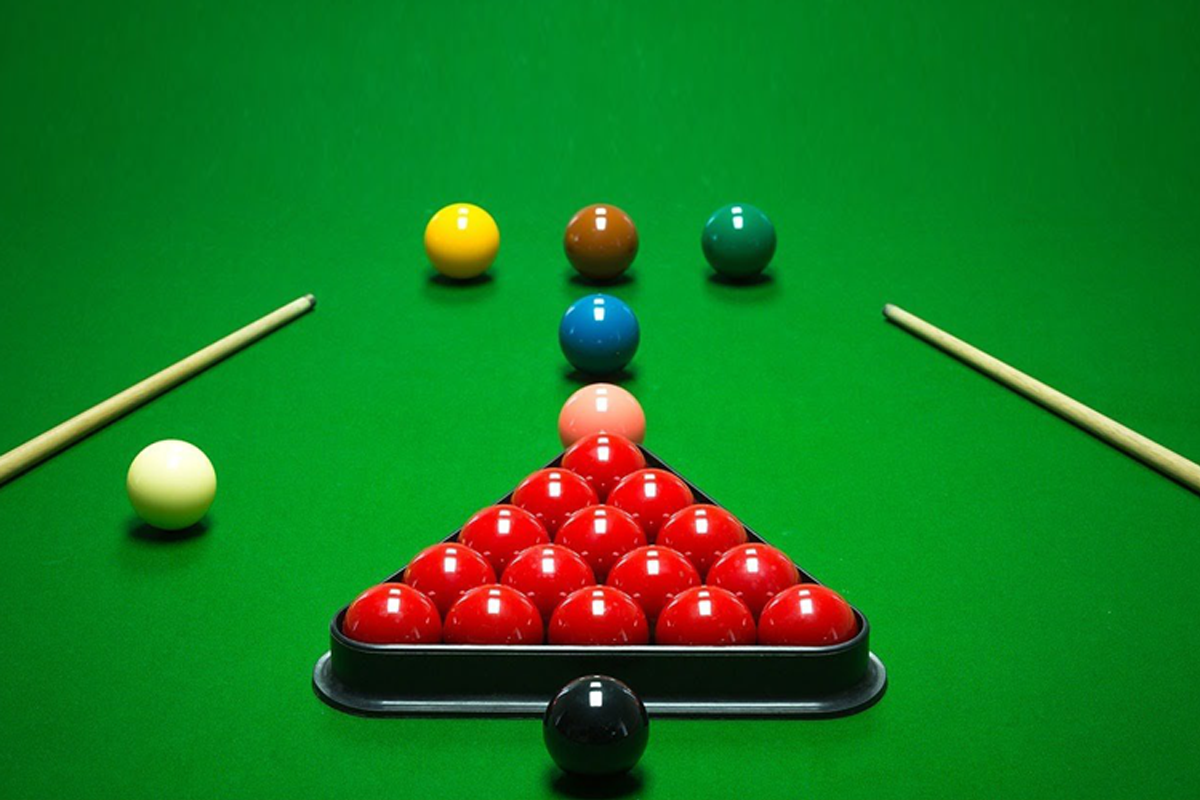Snooker is a cue sport that was invented in the late 19th century in India. The game is played on a rectangular table covered with a green cloth, with pockets in each of the four corners and in the middle of each long side. Using a cue stick, players strike a white cue ball to pot the red and colored balls in the correct sequence. Snooker requires immense skill, unerring focus, and strategic thinking to excel at the elite level. Let us explore the intricacies and nuances of this captivating sport.
The Origins and Evolution of Snooker
Snooker has its origins in billiards games played by British Army officers stationed in India in the 1870s. The name “snooker” came about when a young subaltern made a failed shot and was mocked by his fellow officers as a “snooker”. The modern game of snooker developed in the late 19th century and became popular across Great Britain in the interwar years.
Key developments that shaped snooker include the introduction of the maximum break of 147 points, the setting up of the World Professional Billiards and Snooker Association in 1968, and the staging of the first World Snooker Championship in 1927. Television exposure from the 1960s onward propelled snooker’s popularity worldwide. Today, snooker is a truly global sport played professionally and recreationally across Europe, China and many other countries.
Equipment and Playing Area
Snooker is played on a rectangular 12 x 6 foot table covered with a green baize cloth. There are pockets at each of the four corners (known as the corner pockets) and in the middle of the longer side cushions (called the center pockets).
Snooker balls are slightly smaller than American pool balls, measuring about 52.5 mm in diameter. Regulation balls weigh between 140-160 grams. There are 15 red balls worth 1 point each, 6 colored balls worth 2 to 7 points, and a white cue ball. Snooker cues are generally around 58 inches long and weigh between 17 to 19 ounces.
Chalk is applied to the cue tip before each shot to increase friction and prevent miscues. Other equipment includes triangle racks, scoreboards, rests and other cue accessories. The playing area is well-lit overhead and devoid of any distractions.
Basic Rules and Scoring
Snooker is played between two opponents who take turns striking the cue ball to pot the object balls in the correct order. The aim is to score more points than one’s opponent to win a frame. Professional matches are played over multiple frames.
To begin a frame, the balls are racked with the reds in a triangular pack, and the 6 colors placed on designated spots. The referee rolls the cue ball from baulk to the “D” and play commences.
Points are scored by:
- Potting a red ball (1 point)
- Potting a colored ball after potting a red (2 to 7 points)
- Potting the black after potting a red and colors (frame winning)
If a player fails to hit the intended ball, it is a miss and 4 penalty points are awarded to the opponent. There are also fouls for improper contacts, double hits and others.
The player with the higher score wins the frame when all reds and colors have been potted. The maximum possible score is 147 points from potting all 15 reds with 15 blacks, and all 6 colors.
Snooker’s Greatest Players and Rivalries
Snooker has been blessed with many larger-than-life players over the decades who have left an indelible mark on the game. Let’s look at some of the all-time greats:
Steve Davis – Dominated during the 1980s, winning 6 world titles and 28 ranking events. Nicknamed the “Nugget” for his ruthless attacking play.
Stephen Hendry – Scottish star who won 7 world titles. Set new standards of excellence during the 1990s. First player to score 11 competitive maximum breaks.
Ronnie O’Sullivan – Incredibly talented Englishman who has won 7 world titles. Known as “The Rocket” for his rapid scoring. Has over 1000 career century breaks.
John Higgins – Four-time world champion from Scotland renowned for his consistency. A fierce matchplayer.
Mark Williams – Talented Welshman with 3 world titles. Known for his fluid cue action and witty charm.
Snooker has gained greatly from compelling rivalries over the years, such as Steve Davis v Alex Higgins in the 1980s; Stephen Hendry v Jimmy White in the 1990s; and the more recent one between Ronnie O’Sullivan, John Higgins and Mark Williams who turned professional together. Such rivalries spur standards higher and higher.
More Snooker Greats
In addition to the legends discussed earlier, the sport has been blessed with many other talented and successful professionals over the years. Here are some other standout players:
- Judd Trump – The brilliant Englishman has been one of the world’s best players over the last decade. Known for his flair, heavy scoring and exceptionally quick style. Won the World Championship in 2019.
- Mark Selby – The tenacious Englishman has been ranked world number one for over seven years. Nicknamed the “Jester from Leicester” for his tactical mastery. Three-time world champion.
- Neil Robertson – Australia’s most successful snooker star with a fluid cue action. Won the World Championship in 2010 and multiple other ranking titles.
- Mark Allen – The Northern Irishman is a prolific breakbuilder and Masters champion. Known for his aggressive potting style and determined attitude.
- Ding Junhui – Broke new ground for Asian snooker by reaching the World final in 2016. The Chinese star has over 600 career century breaks.
- Shaun Murphy – Won the World title in 2005 aged just 22. The Englishman’s attacking instincts make him a formidable opponent.
The list goes on showcasing the sheer depth of talent that exists in snooker today. Young talents like Zhao Xintong, Yan Bingtao and more continue to emerge as well, ensuring a bright future for the sport
In conclusion, snooker is a deeply skillful and intricate sport that has captivated millions of fans for over a century. From its origins on the lawns of colonial India to global television phenomenon, snooker has come a long way. However, the essence of the game remains the same – pitting two cueists against each other in a battle of technique, tactics and temperament, under the lights of the green baize. Snooker continues to advance in the 21st century with brilliant new talents bringing their own flair and charisma. The allure of magical performances at the Crucible and other major venues keeps the sport forever evolving and vibrant.

